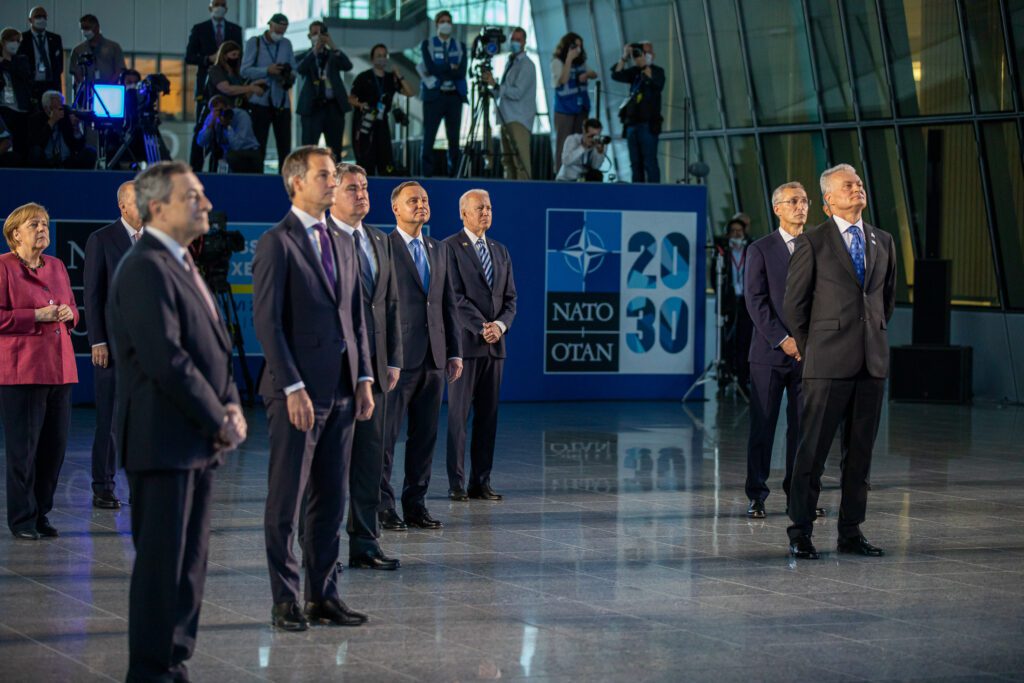NATO (North Atlantic Treaty Organization) has been a prominent player in global peacekeeping operations. Since its formation in 1949, NATO has been dedicated to defending its member states and promoting peace and stability. In the 1990s, following the end of the Cold War, NATO expanded its efforts beyond its borders and became actively involved in peacekeeping. The alliance has played a significant role in peacekeeping operations in the Balkans, specifically in Bosnia and Herzegovina and Kosovo. NATO’s peacekeeping operations aim to prevent conflicts, restore and maintain peace, and contribute to the rebuilding and development of affected regions. While there have been successes, challenges such as complex conflicts and limited resources remain. However, NATO’s commitment to collective security and collaboration with international partners ensure a comprehensive approach to peacekeeping for global stability.
NATO’s Peacekeeping Operations: Contributing to Global Stability
Introduction
NATO (North Atlantic Treaty Organization) has been a key player in peacekeeping operations around the world. Since its establishment in 1949, NATO has been committed to collective defense and ensuring peace and stability within its member states. Over the years, the alliance has also extended its efforts beyond its borders and has been actively engaged in peacekeeping operations globally.
NATO’s History of Peacekeeping
NATO’s involvement in peacekeeping operations began in the early 1990s, following the end of the Cold War. The collapse of the Soviet Union led to a shift in international geopolitical dynamics, and NATO saw an opportunity to utilize its military capabilities in a different capacity: peacekeeping. The alliance played a significant role in numerous peacekeeping operations during this period, including those in the Balkans, particularly in Bosnia and Herzegovina and Kosovo.
The Role of NATO in Peacekeeping Operations
NATO’s peacekeeping operations aim to prevent conflicts, restore and maintain peace, and assist in the rebuilding and development of affected regions. The alliance works closely with international organizations such as the United Nations and the European Union to coordinate efforts and ensure a comprehensive approach to peacekeeping.
Conflict Prevention
NATO prioritizes conflict prevention through several means. It conducts regular assessments of potential conflicts and monitors regions at risk of instability. By doing so, the alliance can take preemptive measures to prevent conflicts from escalating, such as diplomatic interventions and peacebuilding initiatives.
Restoration and Maintenance of Peace
When conflicts arise, NATO deploys peacekeeping forces to restore and maintain peace. These forces consist of troops from NATO member states and contribute to stability by enforcing ceasefires, disarming militant groups, and overseeing the return of displaced persons. NATO’s peacekeepers also facilitate negotiations and dialogue between conflicting parties, acting as impartial intermediaries.
Rebuilding and Development
NATO actively engages in rebuilding and development efforts in post-conflict regions. This involves assisting with infrastructure rehabilitation, supporting governance and rule of law, and promoting economic development. By investing in the reconstruction of war-torn areas, NATO aims to create the necessary conditions for long-term stability and peace.
Successes and Challenges
Over the years, NATO’s peacekeeping operations have achieved notable successes, bringing stability to conflict zones and facilitating political transitions. The alliance’s interventions in the Balkans, for instance, contributed to the end of hostilities and the establishment of democratic governance in Bosnia and Herzegovina and Kosovo.
However, NATO’s peacekeeping efforts have also faced challenges. One of the major challenges is the complex nature of conflicts, involving various ethnic, religious, and political factors. Additionally, limited resources and the reluctance of some member states to commit to long-term operations can hinder the effectiveness of NATO’s efforts.
Conclusion
NATO’s peacekeeping operations play a vital role in promoting global stability. Through conflict prevention, restoration and maintenance of peace, and rebuilding and development, NATO contributes to the resolution of conflicts and the establishment of peaceful societies. While challenges persist, the alliance’s commitment to collective security and its collaboration with international partners ensure a comprehensive and coordinated approach to peacekeeping.
